Blog
Nurses Week: Celebrating Nurse Power!
Happy Nurses Week! We’re marking this time by celebrating Nurse Power! Throughout the week, we’re highlighting a few moments in our history that show what happens when nurses organize, act collectively and bring about social change.
Look for social media posts on National Nurses United Facebook page - https://www.facebook.com/nationalnurses - about how nurses helped improve public health and worker safety, fought for women’s rights, stood up to racial discrimination and gained collective bargaining rights.
Some examples:
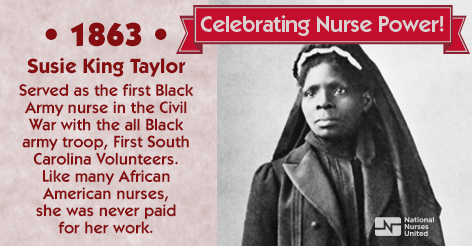
1863 - Susie King Taylor served as the first Black Army nurse in the Civil War with the all Black army troop, First South Carolina Volunteers. Like many African American nurses, she was never paid for her work.

1893 - Nurses Lillian Wald and Mary Brewster created the Visiting Nurse Service of New York and Henry Street Settlement to serve thousands of immigrants living in tenements in the Lower East Side of NYC. These programs, which continue to thrive, formed the roots of Public Health Nursing.
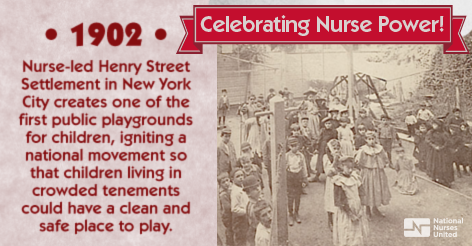
1902 - The nurse–led Henry Street Settlement in New York City created one of the first public playgrounds for children and started a national movement so that children living in crowded tenements could have a clean and safe place to play.

1908 - National Association of Colored Graduate Nurses was founded to represent the professional interests of Black nurses and combat widespread racial discrimination in nursing.
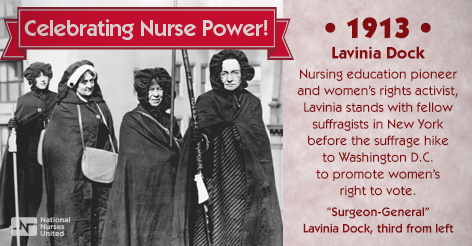
1912-1913 - Lavinia Dock, nursing education pioneer and women's rights activist, took part in suffrage hikes to help promote women’s right to vote.
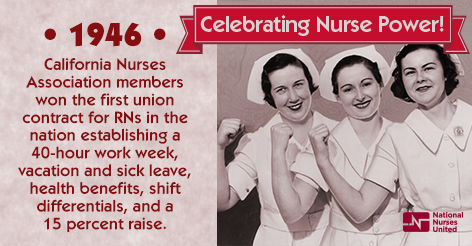
1946 – California nurses won the first collective bargaining agreement by RNs in the country. RNs won 15 percent raise in pay to $200 a month, OT pay, on-call pay, shift differentials, health benefits, paid holidays, vacations and sick leave.
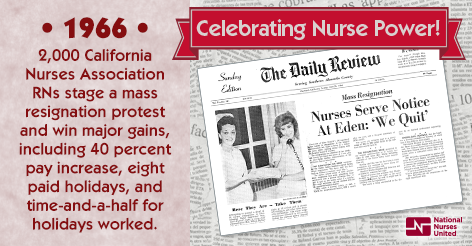
1966 - Mass resignation of 1,979 nurses from 33 California hospitals, resulting in 40 percent increase in pay - $700 a month.

1999 - After hard grassroots effort by nurses, California became the first state to pass a law requiring a minimum nurse-to-patient ratio in hospitals.
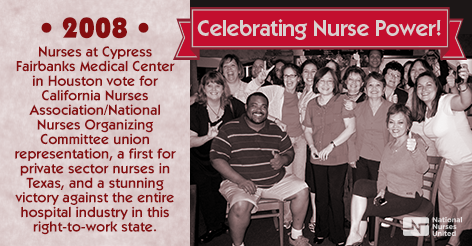
2008 - RNs at Cypress Fairbanks Medical Center in Houston vote to join CNA – becoming the first nurses in a private-sector hospital in Texas to win union collective bargaining rights.

2009 - National Nurses United created.

2014 - After speaking out and holding massive demonstrations, nurses win mandatory Ebola guidelines, which set a new benchmark for strong infection control protections for other epidemics.
Today, National Nurses United RNs are carrying on the proud tradition of helping improve the health and lives of our patients, our families and our communities by advocating for social reform -- Medicare for all, environmental justice, labor rights, Robin Hood Tax on Wall Street, free higher education and a national network that sends RNs to disaster-stricken areas (RNRN).